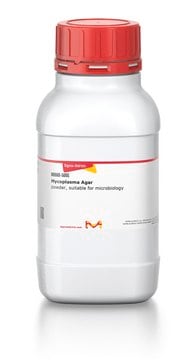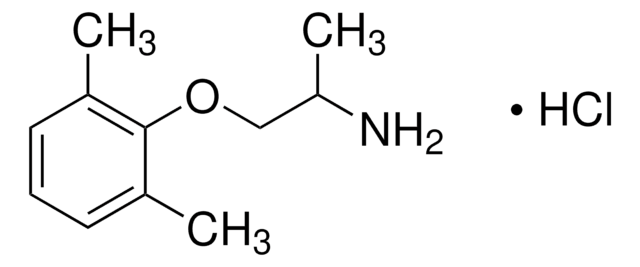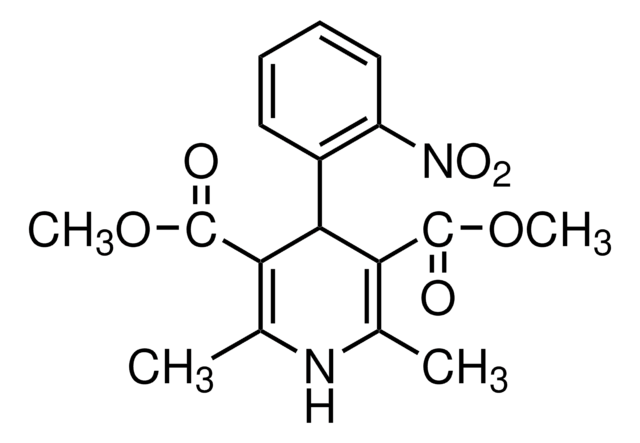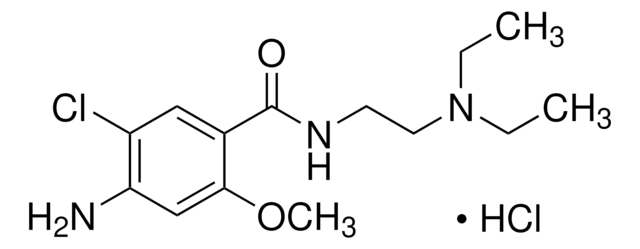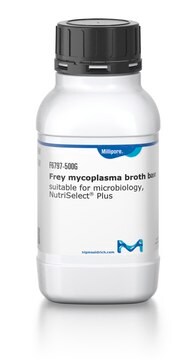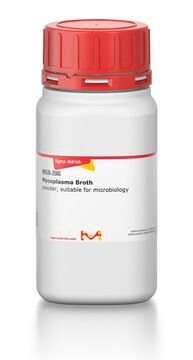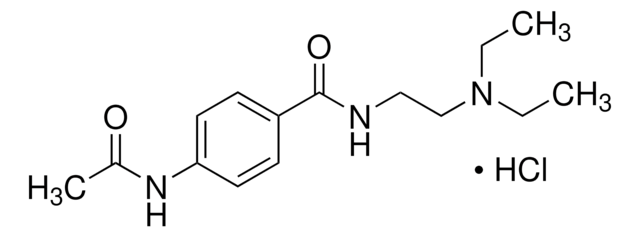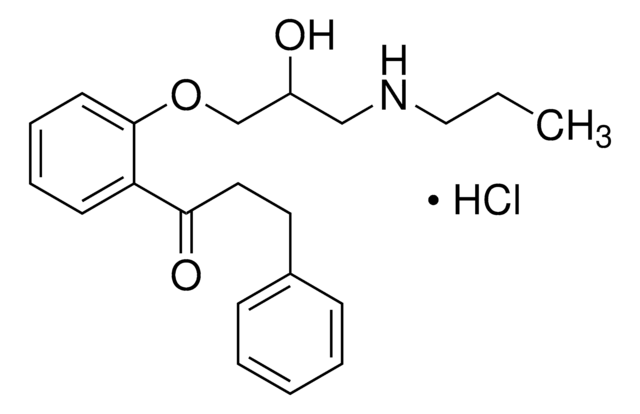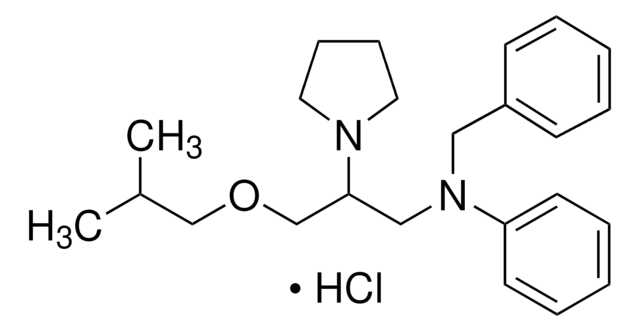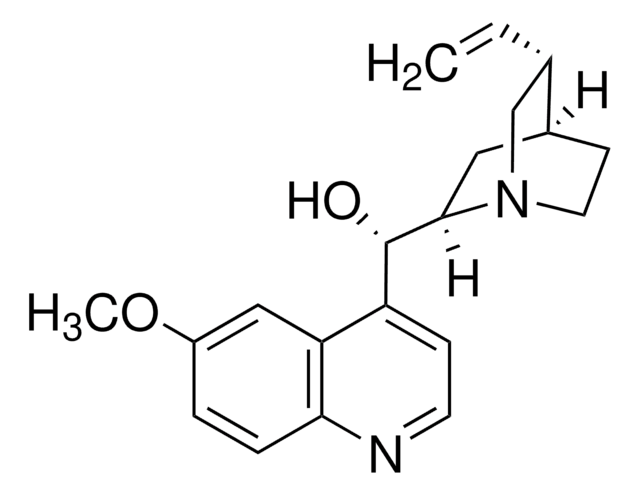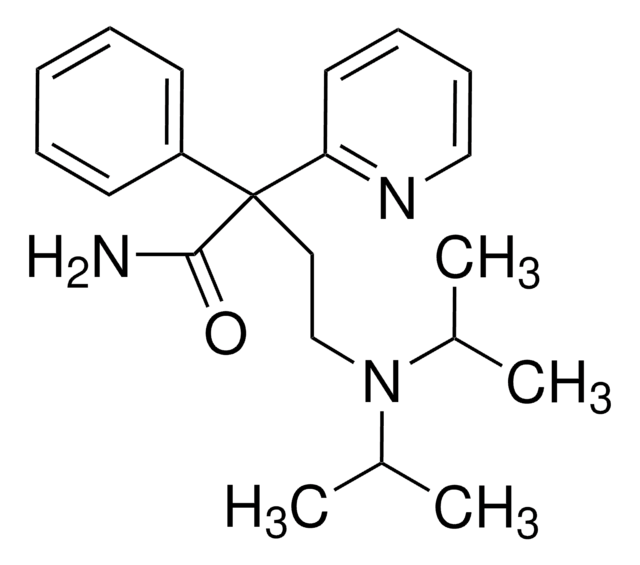M2727
Mexiletine hydrochloride
≥98% (GC), powder, sodium channel blocker
Synonym(s):
1-(2,6-Dimethylphenoxy)-2-propanamine hydrochloride, 1-(2,6-Xylyloxy)-2-aminopropane hydrochloride
About This Item
Recommended Products
product name
Mexiletine hydrochloride, powder
Assay
≥98% (GC)
form
powder
color
white to off-white
solubility
methanol: 50 mg/mL
originator
Boehringer Ingelheim
storage temp.
2-8°C
SMILES string
Cl[H].CC(N)COc1c(C)cccc1C
InChI
1S/C11H17NO.ClH/c1-8-5-4-6-9(2)11(8)13-7-10(3)12;/h4-6,10H,7,12H2,1-3H3;1H
InChI key
NFEIBWMZVIVJLQ-UHFFFAOYSA-N
Gene Information
human ... SCN10A(6336) , SCN11A(11280) , SCN1A(6323) , SCN2A(6326) , SCN3A(6328) , SCN4A(6329) , SCN5A(6331) , SCN7A(6332) , SCN8A(6334) , SCN9A(6335)
Looking for similar products? Visit Product Comparison Guide
General description
Application
- expressed in chinese hamster ovary cells
- in human embryonic kidney (HEK) cells for whole cell patch-clamp studies
- electrophysiology studies in HEK cells expressing Nav1.7 protein
Biochem/physiol Actions
Features and Benefits
Signal Word
Warning
Hazard Statements
Precautionary Statements
Hazard Classifications
Acute Tox. 4 Oral
Storage Class Code
11 - Combustible Solids
WGK
WGK 3
Flash Point(F)
Not applicable
Flash Point(C)
Not applicable
Certificates of Analysis (COA)
Search for Certificates of Analysis (COA) by entering the products Lot/Batch Number. Lot and Batch Numbers can be found on a product’s label following the words ‘Lot’ or ‘Batch’.
Already Own This Product?
Find documentation for the products that you have recently purchased in the Document Library.
Customers Also Viewed
Our team of scientists has experience in all areas of research including Life Science, Material Science, Chemical Synthesis, Chromatography, Analytical and many others.
Contact Technical Service
